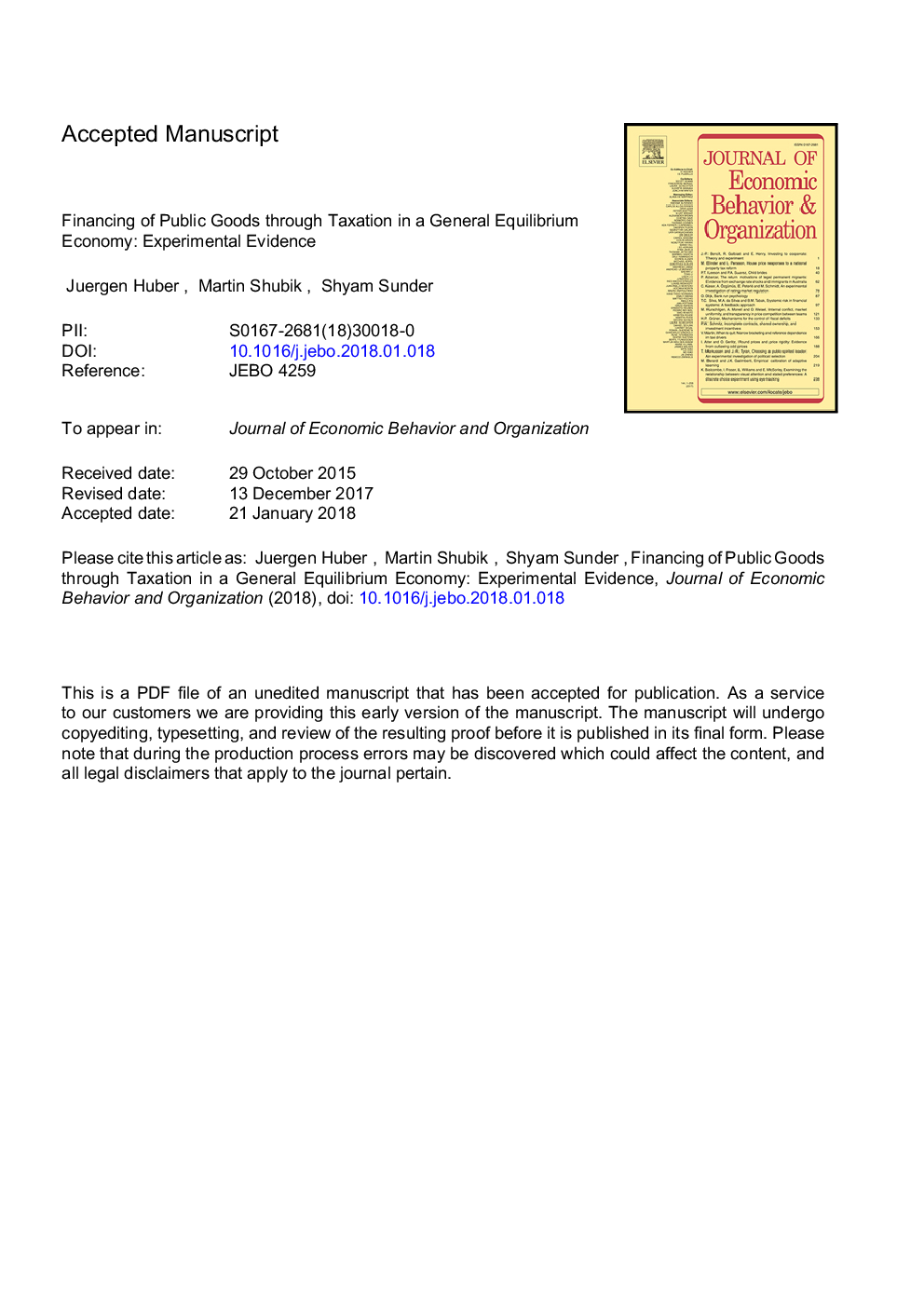| Article ID | Journal | Published Year | Pages | File Type |
|---|---|---|---|---|
| 7242618 | Journal of Economic Behavior & Organization | 2018 | 39 Pages |
Abstract
We use a laboratory experiment to compare general equilibrium economies in which agents individually allocate their private goods among consumption, investment in production, and replenishing or refurbishing a depreciating public facility in a dynamic game with long-term investment opportunities. The public facility is financed either by voluntary anonymous contributions (VAC) or taxes. We find that rates of taxation chosen by majority vote remain at an intermediate level close to the finite-horizon optimum, and the experimental economies sustain public goods at levels between the finite- and infinite-horizon optima. This contrasts with a rapid decline of public goods under VAC. Both the payoff efficiency and production of private goods are higher when taxes are set endogenously instead of being fixed at the infinite-horizon optimum level externally. When taxes are adjusted to the respective finite-horizon optimum each period, production levels and efficiency remain as high as in the voting treatments at least in the latter half of the sessions. When subjects choose between VAC and taxation, 23 out of 24 majority votes favor taxation, demonstrating a clear preference for enforceable taxes to finance public goods in this setting.
Related Topics
Social Sciences and Humanities
Economics, Econometrics and Finance
Economics and Econometrics
Authors
Juergen Huber, Martin Shubik, Shyam Sunder,
